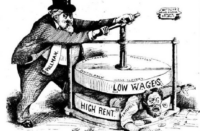The film Wasp Network has recently arrived on Netflix. It tells the story of the heroes known as the Cuban Five who successfully infiltrated anti-communist terrorist groups in Miami.
The Wasp Network (La Red Avispa) was a creation of Cuban intelligence to thwart the efforts of such groups as Alpha 66 and the F4 Commandos. These groups were made up of Cuban émigrés living in Miami who had left the country after the revolution had triumphed, as well as those who foolishly believed they would have a better life under capitalism in the United States. US policy still prevents those migrants from returning to Cuba once they have seen homelessness and unemployment for the first time.
The film’s first half is somewhat confusing, in that it portrays the intelligence agents as actual counter- revolutionaries, until revealing their true role. No spoiler there for anyone who is familiar with the case of the Cuban Five, but it may be confusing for someone who isn’t. It does succeed, however, in showing the commitment the agents had.
One of the film’s greatest strengths is that it honestly shows the reality of the so-called “freedom fighters,” who were in reality little more than cowardly gangsters and mercenaries, more interested in pointless destruction and drug-trafficking than in Cuban politics. What is not shown, however, is the role of the CIA in creating and sustaining these groups; instead they are presented as being independent actors. For instance, the head of the group Brothers to the Rescue, José Basulto, who appears regularly in the film, was a CIA operative and not some misguided humanitarian.
Brothers to the Rescue shot to worldwide attention in 1996 after two of their planes were shot down over Cuban air space, an event portrayed excellently in the film. They had been involved in dropping propaganda leaflets over Havana and, according to the agent who infiltrated them, were planning offensive actions against Cuba, with the bombing of hotels by terrorist groups beginning not long after the shooting down of the planes.
The Clinton government used the incident to pass the Cuban Liberty and Democratic Solidarity Act (Helms-Burton Act) and the Cuban Democracy Act (Torricelli Act), which further tightened the blockade around Cuba. What should be kept in mind about the shooting down of the planes, and the infiltration of the groups in Miami, is the context: Cuba no longer had the support of the USSR and other socialist states. The United States was intent on destroying Cuba, at a time when its economy was in trouble. Cuba was fully justified in taking defensive actions against provocative acts.
Not long after the arrests of the Five the Miami rabble kidnapped six-year-old Elián González, leading to an intense stalemate that resulted in Fidel Castro proclaiming that Cuba was involved in a “Battle of Ideas.”
The film occasionally includes a bit of anti-communism, though much less than expected for a mainstream work. Given the way this fits in with the general tone of the film, which portrays the Five sympathetically, it can only be presumed that this was forced into the film in an attempt to allow it to be made. Not that it helped much, given that the Miami rabble are already calling Wasp Network communist propaganda, much as they did for Steven Soderbergh’s Che.
Without giving anything away, the film’s ending could have been managed a bit better, given that the trial and subsequent treatment of the Five is treated very quickly and does not include, for instance, the journalists who were paid by the CIA to write articles demanding lengthy prison sentences. The case of the Five is presented as a sort of niche topic for audiences, rather than a case that ignited the passion of the Cuban people and attracted solidarity from all over the world.
Anti-Cuban terrorism claimed the lives of 3,500 people over a period of thirty or so years. This is almost the same number of deaths in a similar length of time during the recent conflict in the north of Ireland, to put things into perspective. The film’s strength is that it portrays the campaign honestly, and audiences can understand why the Cuban state was forced to infiltrate the groups responsible.
Wasp Network generally deals with its characters and their families—with wives portrayed by Penélope Cruz and the Cuban actor Ana de Armas—and manages to show the sacrifices the Five made out of what Che Guevara described as the revolutionary’s sense of love—for their family and their country.






